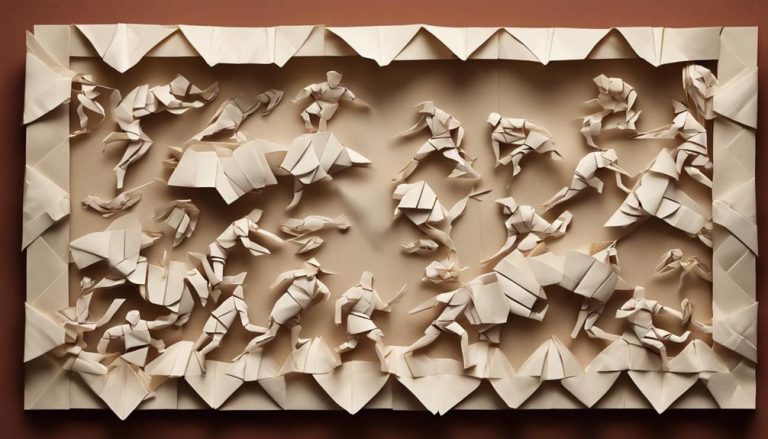General Rules of Wheelchair Dancing
Wheelchair dancing brings grace, strength, and inclusivity to the floor, yet it remains overlooked by many fans. Dancesport athletes flawlessly maneuver wheelchairs in hold with partners and as solo performers. The choreography, mobility skills, and partnering dazzle crowds. By understanding classifications, styles, rules, and skills, anyone can gain an appreciation for this exceptional adaptive sport.
This article covers the fundamentals of competitive wheelchair dancing to showcase why it deserves more mainstream enthusiasm. We’ll explain the wheelchair sport classes, standard dances like the waltz and tango, common movements and spins. The dual physical and creative mastery provides a new perspective. Once informed about classes, styles, skills, and rules, the athletic artistry and technique of these dancers shines through. Wheelchair dancing has earned recognition as more than just therapy. Let’s begin by looking at wheelchair sport classification for competitions.
What Is Wheelchair Dancing
Knowing what wheelchair dancing is can help you learn the general rules of the activity. Wheelchair dancing is a form of dance that’s accessible to those with physical disabilities and wheelchair users. It’s an opportunity for those who use wheelchairs to express themselves and move to the rhythm of the music. Unlike traditional forms of dance, wheelchair dancing doesn’t require standing or moving without assistance. Instead, wheelchair dancing relies heavily on coordination, grace, and creativity to move to the music while seated in a wheelchair.
Wheelchair dancing is suitable for all ages and levels of ability and is a great way to stay active and have fun. When it comes to wheelchair etiquette, it’s important to be respectful of the space of other dancers, both wheelchair users and non-wheelchair users alike. It’s also important to be respectful of any specific dance accessibility rules or needs that the dancer might have.
Wheelchair dancing is a great way to build confidence and self-esteem. It encourages dancers to think outside the box, be creative, and have fun. It’s also great exercise, as it requires the dancer to move and engage the muscles in the arms and legs. Additionally, wheelchair dancing helps to build a sense of community by bringing together dancers of all abilities and backgrounds.
Wheelchair dancing is an excellent way to enjoy music and explore different forms of dance without the limitations of physical abilities. It allows wheelchair users to express themselves and move in a safe and enjoyable way. With the right attitude and some practice, wheelchair dancing can be an exciting and rewarding activity.
Benefits of Wheelchair Dancing
You can reap many benefits from wheelchair dancing, such as improved confidence, enhanced creativity, and increased physical strength. Wheelchair dancing is an inclusive activity that allows those with physical disabilities to partake in creative expression. Whether it is a solo dance or a group routine, wheelchair dancing provides an opportunity to connect with others on a social and emotional level.
The physical benefits of wheelchair dancing are often overlooked. People in wheelchairs may not be able to participate in certain physical activities, but wheelchair dancing can help improve their overall physical health. It can help strengthen muscles, increase flexibility, and improve coordination.
Wheelchair dancing is also an excellent way to boost mental health. It is a creative outlet that promotes self-expression and can be a great way to manage stress and gain confidence. It also provides a sense of community and can help build meaningful relationships with other dancers.
| Benefits of Wheelchair Dancing |
|---|
| Improved Confidence |
| Enhanced Creativity |
| Increased Physical Strength |
| Creative Expression |
| Social Connection |
Types of Wheelchair Dancing
Knowing the different types of wheelchair dancing can help you decide which style is best for you. Wheelchair dancing is a form of exercise that offers many physical, mental, and emotional benefits. It’s a great way to stay active and have fun while doing so. There are several types of wheelchair dancing, each with its own unique style and music selection.
One type of wheelchair dancing is ballroom dancing. This style of dancing involves two people in wheelchairs performing a pre-choreographed routine to upbeat music. It’s very similar to traditional ballroom dancing, except that it’s adapted for people in wheelchairs. This style of dance is perfect for those who are looking to increase their overall fitness level, as it requires strength and coordination to master the moves.
A second type of wheelchair dancing is the freestyle wheelchair dance. This is a more improvisational style of dance where the dancer is free to choose their own music and create their own movements. It’s an excellent way to express oneself through movement and music. This type of dancing can also help to build confidence and self-esteem.
Lastly, there’s the competitive wheelchair dance, where dancers compete against other dancers in wheelchairs. This is a great way to stay motivated and push yourself to become a better dancer. It’s also a great way to meet other people who’ve similar interests.
No matter what type of wheelchair dancing you choose, it’s important to have fun and enjoy yourself. This type of exercise can provide many physical, mental, and emotional benefits. It can help improve coordination, strength, and balance, as well as increase self-confidence and self-esteem. So, if you’re looking for a unique way to stay active, give wheelchair dancing a try!
Preparing for a Wheelchair Dance
If you’re planning on wheelchair dancing, it’s important to prepare yourself properly. Here are five key things to keep in mind:
- Equipment Needs: Make sure your wheelchair is in good working order, and that you have the right equipment for the type of dance you’re doing. This might include specialized gloves, straps, or other accessories.
- Safety First: Wheelchair dancing can be a risky activity, so ensure you take all the necessary safety precautions. Make sure you’re familiar with the environment and any potential hazards, and that you have a spotter for any more complicated moves.
- Stretching: Before you start your routine, make sure you do a proper stretching session to warm up your muscles and prevent any potential injuries.
- Dress Appropriately: Choose clothes that are comfortable and allow you to move your body with ease. Make sure they fit snugly so that you won’t be distracted by any loose fabric.
- Dance Etiquette: Be aware of the etiquette associated with the type of dance you’re doing. Respect your fellow dancers, and follow any rules the instructor has outlined.
Safety Tips for Wheelchair Dancing
Regardless of the type of wheelchair dancing you’re doing, it’s important to take all necessary safety precautions. Whether you’re learning the basics of wheelchair dancing or you’re working on more advanced techniques, it’s essential to understand the basics of staying safe. Here are some tips for staying safe while wheelchair dancing.
First, become familiar with learning proper technique. It’s important to learn the basics of wheelchair dancing and to understand how to perform the moves safely. Even if you’re an experienced wheelchair dancer, it’s still important to practice the proper techniques to ensure that you don’t injure yourself.
Next, it’s important to find a partner who’s of similar skill level and experience. You should never attempt to do any complicated moves with someone who isn’t experienced in wheelchair dancing. Additionally, it’s important to have an understanding of your partner’s abilities and limitations.
Finally, it’s important to have the right equipment. Make sure you’re using the proper type of wheelchair and that it’s properly adjusted and fitted. It’s also important to use the right type of flooring and to make sure the area is free of any obstacles that may cause injury.
Finding Wheelchair Dance Opportunities
Once you’ve become familiar with the safety tips for wheelchair dancing, you’re ready to start looking for opportunities to dance. Here are five ways to find wheelchair dance opportunities:
- Check your local community centers and events for wheelchair dance classes. These classes can provide an opportunity to learn from experienced dancers and to meet other wheelchair dancers.
- Look for wheelchair dance groups in your area. These groups often host performances and competitions, which can be a great way to show off your skills and meet others who share your passion for wheelchair dancing.
- Join a wheelchair dance organization. These organizations often host workshops and seminars on wheelchair dancing, and provide a great way to network with other wheelchair dancers.
- Check online for wheelchair dance classes, workshops, and events. There are many online resources that offer information about wheelchair dancing.
- Reach out to local dance partners who can provide wheelchair accessibility. Dance partners can provide an invaluable resource for wheelchair dancers, as they can help to make sure that the dances are wheelchair accessible, and can provide support and guidance for wheelchair dancers.
Frequently Asked Questions
What Is the Difference Between Wheelchair Dancing and Adaptive Dancing?
Wheelchair dancing and adaptive dancing may seem similar, but there are key differences.
Wheelchair dancing is a partner dance that uses wheelchair etiquette and adapted choreography to accommodate the abilities of the dancers.
Adaptive dancing, on the other hand, is often done solo and is about finding ways to express yourself through movement that works with your body’s abilities.
Both require creativity and an appreciation for the power of movement and music.
Ultimately, both wheelchair dancing and adaptive dancing involve exploring movement and expression in a way that works for you.
Are There Any Age Restrictions for Wheelchair Dancing?
Not to put a damper on your dreams, but there can be age restrictions for wheelchair dancing depending on the individual’s physical limitations and safety precautions.
To put it in a nutshell, age can be a factor when it comes to participating in wheelchair dancing. Depending on the dancer’s size, strength, and physical condition, an instructor may suggest an age limit for a particular dance.
For example, a ballet-inspired routine may be too strenuous for a dancer under the age of 18.
In short, age can be a deciding factor for a dancer’s participation in wheelchair dancing.
Can Wheelchair Dancing Be Done With a Partner?
Yes, wheelchair dancing can be done with a partner! Adaptive partnerships bring an exciting level of creativity and connection to wheelchair performance. This type of collaboration allows both partners to explore movement, expression, and connection in a safe and creative environment.
Partners can work together to create unique and beautiful duets that wouldn’t be possible without two people. Whether it’s a once-in-a-lifetime performance or a regular practice, wheelchair dancing with a partner can be a powerful and rewarding experience.
Is Wheelchair Dancing Considered a Competitive Sport?
You may be asking, ‘is wheelchair dancing considered a competitive sport?’ The answer is yes, it absolutely is! In fact, many wheelchair dancers compete in various dance styles around the world.
However, it’s important to remember that wheelchair dancing should also be done in a respectful manner. As the adage goes ‘treat others the way you want to be treated’, wheelchair etiquette and access barriers should be taken into consideration.
Wheelchair dancing is an amazing way to express yourself, compete, and have fun – so keep on dancing!
What Types of Music Are Used for Wheelchair Dancing?
Wheelchair dancing is becoming increasingly popular. Depending on the style, you can use a variety of popular music genres such as pop, hip hop, R&B, and jazz. The music should be upbeat and energizing, allowing you to move to the rhythm of the beat and flow through your various dance moves.
Many wheelchair dancers have creative freedom when it comes to choosing their songs, allowing them to express themselves in a unique way. Wheelchair dancing offers a great way to stay active and have fun.
Wheelchair dancing is an enjoyable and rewarding activity for people of all ages and abilities. It can be a great way to stay active and connected with your community.
Plus, it can be a lot of fun! So why not get out there and give it a try? Who knows, you might just find your new favorite hobby!






